Each week Fathom writers will recommend five Israel-related books, films or podcasts to help our readers through the lockdown. Read previous recommendations here.
Jo-Ann Mort recommends Emile Habibi’s The Secret Life of Saeed: the ill-fated Pessoptimist
When writer and political activist Emile Habibi died, his eulogy was delivered by noted Palestinian poet Mahmoud Darwish. Habibi was beloved by Palestinians and Israeli Jews both. Buried in Haifa where he lived much of his life, his gravestone reads: ‘I stayed in Haifa,’ just as he wished it. Habibi, who served nearly 20 years (in two different decades) in the Knesset, was a founder of Israel’s Communist Party, an antecedent to today’s Hadash, now chaired by Ayman Odeh, also from Haifa.
He was an intellectual, a politician, and a marvelous writer. His penultimate work is the novel The Secret Life of Saeed: the ill-fated Pessoptimist. Though this book was originally published (first in Arabic) in 1974, it remains the novel to read about the experience of Palestinian citizens of Israel, those Palestinians descended from families that remained in Israel after 1948. Today, they are one-fifth of all Israeli citizens. It’s charming, funny, and quite serious. It’s a critical read for anyone who wants to understand contemporary Israel.
Habibi’s photo is on the wall of the Knesset lobby, along with other winners of the Israel prize. He won the prize in 1992 for Arabic literature. ‘[My accepting the prize] is an indirect recognition of the Arabs in Israel as a nation,’ he said. ‘This is recognition of a national culture. It will help the Arab inhabitants in their struggle to retain roots in their land and win equal rights.’
The political situation has changed since 1974, but the dilemma of Israel’s democracy remains to be sorted out: how to create a shared society that recognises the Jewish majority and the Arab minority as equal citizens. Read this novel.
Jo-Ann Mort writes frequently about Israel and Palestinian issues. She’s based in Brooklyn, NY. Twitter: @changecommnyc
*
Donna Robinson Divine recommends two films, The House on Chelouche Street and The Summer of Aviva
Israel was founded in 1948 in war, a period glorified by stories of the brave men and women driven by a sense of historic mission for national liberation. But the terrible price paid by the generation fighting for a Jewish state also fell on people not fully prepared to bear its costs. At a time when people are wondering if covid-19 will forever change us and our world, I offer two films showing that while circumstances can change dramatically, the ideas through which we process the unexpected often remain stubbornly the same. Two classic films of the years before and after Israel’s founding — The House on Chelouche Street and The Summer of Aviya — offer examples of the persistence of society’s fissures and fractures that harden despite the crisis as dire for Jews in the Middle East as the one we are living with today. The House on Chelouche Street focuses on a Sephardi family in 1947 Tel Aviv where gender, class, and ethnicity shape views and values. The Summer of Aviya draws attention to post-independent Israel depicting a woman, once celebrated as a heroine fighting the Nazis in Europe, cast out to the margins of her community in the new Jewish state many of whose residents are preoccupied by class and social etiquette. The brilliant actress, Gila Almagor, appears in both films, and the second is based on her own life. Today, when most of us are asked to do nothing but stay at home, we are fearful of what we will see when we are allowed to venture out. We may be surprised to find how little — for good and for bad — has changed.
Donna Robinson Divine is Morningstar Family Professor in Jewish Studies and Professor of Government at Smith College.
*
Kyle Orton recommends the film Bethlehem
My recommendation would be a film, Bethlehem (2013). While quite a lot of spy movies get made, not many of them are very good – particularly in the sense of being realistic. Bethlehem is an exception in all senses. It’s a compelling movie in its own right, and it deals very well with the messy, complicated relationship between agent and handler, in this case a Shabak officer and a young Palestinian man. The politics of the situation are unavoidable, since they are the setting that provides the protagonists their options and motives, and there is no shying away from realities. The geography, environment, events, even the language (the film is in Hebrew and Arabic) is true to life. But it is not a film about politics per se; the focus is on the human dimension of espionage at the ground level – in the Palestinian Territories, and by implication in the wider world, how the competing and contradictory motives of individuals end up guiding their actions.
Kyle Orton is a Middle East analyst.
*
David Hirsh recommends three Fathom essays by Robert Fine
These three essays are testament to the range of his intellect and how he brought diverse stories, experiences and ideas together. He was not expert in one topic but was continually stretching into different times, places and ways of thinking. He read with generosity. He would make a book better than it was. He would take for himself the best a thinker could have become, rather than scoop up the low hanging weaknesses.
His review of Ken Marcus’ book on defining antisemitism begins with a contextualisation of the concept itself and it grasps the strengths of the book. You can see in these reviews how Robert’s own understanding profits no less by reading material far away from his own frameworks than by that which is closer to his comfort zone.
The review of Shmuel Feiner’s biography of Moses Mendelssohn is, for Robert, an unusual excursion into a specifically Jewish tradition. Both Christian von Dohm’s antisemitism, and Mendelssohn’s critique of it, reverberate through the ages to speak to Fine about things in his own time. Fine’s commitment to contemporary struggles and his scholarly inquisitiveness about debates from hundreds of years ago combine to enrich both.
And even more so in Robert’s review of Benjamin Pogrund’s critique of the way the Israel/Apartheid analogy is mobilized to bypass critical thinking and as a vehicle for propagating deadening populist politics. It is conditioned by Fine’s own history of engagement with the anti-apartheid movement which allows him to treat it as more than an empty signifier of virtue. Fine makes connections, he draws on experience, on reading, on expertise, on his ability to analyse. He has the understanding of a man who was both involved in the world and in scholarly descriptions of it.
David Hirsh is the author of Contemporary Left Antisemitism.
*
Alan Johnson recommends Sean Matgamna’s Arabs, Jews and Socialism
It was Sean Matgamna – or ‘Rebbe Matgamna’ as some in the Union of Jewish Students affectionately called this brilliant Irish intellectual and former Docker at the time – who woke me from my dogmatic One-State slumber in the mid-1980s. Sean was the leading theoretician of Socialist Organiser, the far-left group I had joined in 1980 as a student. Out of a clear blue sky he walked in one day with a paper arguing that our group should drop the demand for a ‘democratic secular state’ and embrace ‘two states for two peoples’ instead. After a long internal debate – the sophistication and seriousness of which I was never to find in academia – his arguments prevailed.
‘It seems to me, Matgamna wrote, ‘that the terms of the only just solution of the Israeli-Palestinian conflict are clear and unmistakeable. Unless you think the interests of one side should be entirely sacrificed to the other – that is, unless you are either an Arab or an Israeli chauvinist – there is only one acceptable solution. Each nation should have self-determination in the territory where it is the majority. … The secular democratic state necessarily involves replacing the Jewish state of Israel with another arrangement in which Jews will not have a state. The goal is not only to secure Palestinian rights by putting an end to Israeli rule in the Palestinian territories, but to deprive Israeli Jews of their national rights.’
Well, indeed. Obvious enough, you might think, but those ideas were a heresy on the radical left at the time. (They still are.) Along with Steve Cohen, Matgamna also educated us about left antisemitism. His influence is vastly underrated. Our youth leader Jane Ashworth went on to set up a website ‘Engage: the anti-racist campaign against antisemitism’ with another Matgamna boy, David Hirsh, himself the author of Contemporary Left Antisemitism. The brilliant Robert Fine went on to write (with Philip Spencer) Antisemitism and the Left. And I created this journal and produced a report Institutionally Antisemitic: Contemporary Left Antisemitism and the Crisis in the British Labour Party.
Arabs, Jews and Socialism was first published in 1989. A 2019 edition, expanded and corrected, can be read here, Matgamna’s contributions to it hint at why he exerted an influence on us all. For any left-winger who has wandered into the swamp of ‘absolute anti-Zionism’, Matgamna offers a rope. Grab on and get out.
Alan Johnson is the editor of Fathom and the author of ‘Leon Trotsky’s Long War Against Antisemitism.’

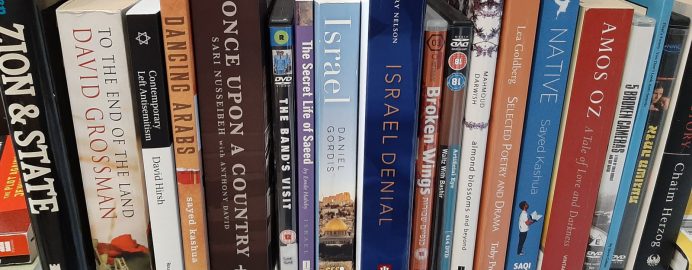
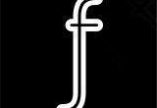
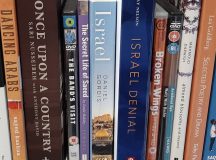
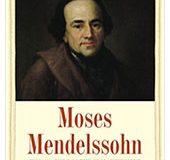
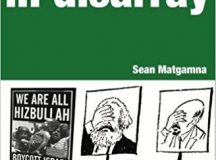































Comments are closed.